Iceland has a green light to start accession negotiations with the EU
Adelina Marini, June 25, 2010
 It might sound familiar that at the European Council on June 17 in Brussels the news about Iceland being given green light to start EU accession negotiations got lost among the pile of other "more important" issues in EU leaders' agenda. This used to happen quite often to Bulgaria too when the country expected such news impatiently and with the feeling that everyone was excited about it. The news got so much lost among other issues that the president of the European Council Herman van Rompuy in the end of the press conference after the Council had to explicitly ask Icelandic journalists be given the chance to ask 1 question so that this news could be noted somehow, at least in Iceland.
It might sound familiar that at the European Council on June 17 in Brussels the news about Iceland being given green light to start EU accession negotiations got lost among the pile of other "more important" issues in EU leaders' agenda. This used to happen quite often to Bulgaria too when the country expected such news impatiently and with the feeling that everyone was excited about it. The news got so much lost among other issues that the president of the European Council Herman van Rompuy in the end of the press conference after the Council had to explicitly ask Icelandic journalists be given the chance to ask 1 question so that this news could be noted somehow, at least in Iceland.
In their final conclusions EU leaders point out that the Council welcomes the Commission's opinion on Iceland's application for membership of the EU and approves the recommendation that accession negotiations should be opened. This decision is based upon the fact that Iceland meets the political criteria (known as the Copenhagen criteria) and this is why the Council is giving green light accession negotiations to start.
In the same time it stipulates that the forthcoming negotiations will be aimed at Iceland integrally adopting the EU acquis and ensuring its full implementation and enforcement. And also that the island country should address all obligations and weaknesses, identified by the Commission, especially in the area of financial services. The latter is related to the reasons why Reykjavik was on the verge of bankruptcy because of the banking crisis that shattered the country with the peak of the global financial crisis.
No matter how familiar this might sound to the Bulgarian society, the differences are serious, especially with regard to deadlines - Iceland filed its accession application in July 2009 and gets a green light by the European Council almost a year later. There was no tension among the colleagues from Iceland or the Icelandic delegation which we could constantly feel during the long accession process of Bulgaria.
Now, aside from finishing the negotiations, Iceland has to reach an internal consensus on whether it really wants to be part of the EU or not. And this is, for now, the more difficult part of the process. Furthermore, after the end of the negotiations the country has to hold a referendum because EU membership requires a change in Iceland's Constitution, which needs the approval of the society.
How does Iceland look through its own eyes and through the European perspective?
Quite interesting observations shared in Reykjavik before a group of EU  journalists a very well known to Bulgaria person - Timmo Summa, who is now a head of the European Commission Delegation in Iceland. He is well known in our country because he was part of Olli Rehn's team when he was an Enlargement Commissioner and is therefore well acquainted with the problems surrounding Bulgaria's accession.
journalists a very well known to Bulgaria person - Timmo Summa, who is now a head of the European Commission Delegation in Iceland. He is well known in our country because he was part of Olli Rehn's team when he was an Enlargement Commissioner and is therefore well acquainted with the problems surrounding Bulgaria's accession.
He shared his opinion both in his capacity of a European official and in person. For him Iceland is an already integrated country. The most educated one, among the most hard working people - and this can be seen with a bare eye - just a tour of the island and one starts wondering how could possibly only 300,000 people achieve so much in such severe climate conditions.
But the Finnish Summa is aware that the negotiations with the island country will be tough because: the Icelanders are extremely independent and stubborn (typical islandish behaviour); they do not accept anyone to tell them what to do. "This is going to be a challenge for the EU", Timmo Summa says and adds: "To the East people sit on the negotiation table, ready to sign everything just because they want the money of the German taxpayers. The Icelanders are totally different". And this could be seen in their preparation of the accession application. The European Commission had sent them a questionnaire with 1,000 questions and was surprised - the answers got back earlier than the deadline - duly prepared.
Another big difference, which the head of EU Delegation in Reykjavik outlined is that although Iceland is part of EU's Enlargement Policy, its membership to the Union is not perceived on the basis "either-or" as is the case with Albania or as it was with Bulgaria. In other words, no one is putting conditions to Iceland's accession - either you do whatever, or there is no accession. The Icelanders are professionals. And this is what makes things harder. To euinside's question whether it could be expected Iceland's chief negotiators to ask for opt-outs during the negotiations process, Timmo Summa responds: "We still have no negotiations but everyone knows that we do not like opt-outs".
And one more very important thing - Iceland is trouble-free in every aspect. However, here is the question - can the EU live without Iceland? Of course it can - is the direct but shortsighted answer. The geostrategic situation of the country, no matter how small and insignificant it is, could be not only an added value to the EU but in fact a really valuable asset. Then the question should be - can Iceland live without the EU?
This is a question to which everyone in Iceland responds ambiguous. The Icelandic Confederation of Labour says that the EU should first look itself in the mirror and solve all of its problems, especially those in the eurozone. This is an important point of view because the main reason for Iceland to decide to apply for EU membership is the perspective of joining the single currency which could protect the country from the risks of a weak national currency.
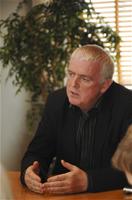 In this regard the president of the Confederation Gylfi Arnbjornsson agrees with the measures for budgetary surveillance being discussed currently on a Community level, because the national government needs external pressure. His position about a future referendum on EU membership is slightly different than those I heard in Iceland - a referendum should be held because of the weak political system. In fact this is an issue, noted by Timmo Summa as well - very fragmented political landscape. In the same time Mr Arnbjornsson raises an issue, frequently raised in the EU: "How can the EU have a central bank and not have a common fiscal policy?"
In this regard the president of the Confederation Gylfi Arnbjornsson agrees with the measures for budgetary surveillance being discussed currently on a Community level, because the national government needs external pressure. His position about a future referendum on EU membership is slightly different than those I heard in Iceland - a referendum should be held because of the weak political system. In fact this is an issue, noted by Timmo Summa as well - very fragmented political landscape. In the same time Mr Arnbjornsson raises an issue, frequently raised in the EU: "How can the EU have a central bank and not have a common fiscal policy?"
The meeting with representatives of non-governmental organisations pro- and 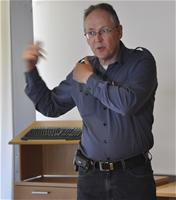 anti-EU was very interesting. Pall Vilhjalmsson from the Anti-EU movement Heimssyn started the introduction of his movement's position with an interesting historic review - what the origin of the Icelanders was, their special position in the world and their skills to live on their own. He said that the crisis gave a very good opportunity to those who wanted EU membership but this Union had no perspective was his conclusion. I asked him whether he would agree to the option Iceland to become a member of the Union with an opt-out in some sensitive areas: "I don't think we would agree to opt-outs in the current situation. But it is not impossible if the EU would change".
anti-EU was very interesting. Pall Vilhjalmsson from the Anti-EU movement Heimssyn started the introduction of his movement's position with an interesting historic review - what the origin of the Icelanders was, their special position in the world and their skills to live on their own. He said that the crisis gave a very good opportunity to those who wanted EU membership but this Union had no perspective was his conclusion. I asked him whether he would agree to the option Iceland to become a member of the Union with an opt-out in some sensitive areas: "I don't think we would agree to opt-outs in the current situation. But it is not impossible if the EU would change".
Mr Vilhjalmsson is one of those who follow the developments in the EU in the context of Greece and the other troubled countries and this is their main argument. To our numerous questions, however, how do they imagine small Iceland with its small population to survive in a world where the groupings tendencies become stronger and stronger (and I explicitly pointed to him the Shanghai Cooperation Organisation in Asia, the African Union, the latest ideas for a Latin Union in South America), Pall Vilhjalmsson started losing ground in his position.
"If the world would transform into blocks we will consider it", he says. "If Norway would become a EU member than we will have no choice", is the follow-up which gives a lot of ground for specific thoughts. The Icelanders are descendants of the Norwegian vikings. They were for centuries under Norwegian influence and rule and are keen on accepting the Norwegian intimacy (or distance) with the EU.
He very much liked the word our Danish colleague in our group mentioned - Atlanticists because the Icelanders still have trouble with their identification - they are both Europeans and Americans but in fact they are a small island in the middle of the Atlantic ocean, lying on the rupture of the Eurasian and American tectonic plates.
 Andres Petursson, president of the Pro-EU organisation Evropusamtokin and Gunnar Arselsson from the same organisation did not seem that much motivated as their predecessor with whom they had good professional relationship at a university level. Without suffering from redundant self-possession or self-confidence, they believe that in two years the picture would change and a lot more people in Iceland would support membership. They also believe that they can change public opinion. But both are aware that the Yes or No would depend on how the accession negotiations on fisheries will go ahead (the main argument against Iceland's accession).
Andres Petursson, president of the Pro-EU organisation Evropusamtokin and Gunnar Arselsson from the same organisation did not seem that much motivated as their predecessor with whom they had good professional relationship at a university level. Without suffering from redundant self-possession or self-confidence, they believe that in two years the picture would change and a lot more people in Iceland would support membership. They also believe that they can change public opinion. But both are aware that the Yes or No would depend on how the accession negotiations on fisheries will go ahead (the main argument against Iceland's accession).
In Iceland there is no European feeling - the one that we had and still do in Bulgaria. The Union is being perceived entirely pragmatically - let us see what they have to offer and then we will decide - a vision which we came across everywhere in Iceland during all of our meetings in 5 days. Petursson and Arselsson explain that this  feeling is actually consistent with human rights, equality, democracy. The Pro-EU organisation raises another issue which will appear as important during the negotiations process - agriculture. In spite of its small share in the economy, agriculture is vital for the country which imports 60% of its food, 70 per cent of which from the EU. "We cannot give up agriculture because no one would import milk for only 300,000 people", is the argument.
feeling is actually consistent with human rights, equality, democracy. The Pro-EU organisation raises another issue which will appear as important during the negotiations process - agriculture. In spite of its small share in the economy, agriculture is vital for the country which imports 60% of its food, 70 per cent of which from the EU. "We cannot give up agriculture because no one would import milk for only 300,000 people", is the argument.
In Akureyri (the most northern big town in Iceland) we meet professor Agust Thor Arnason. He is a project manager in the Akureyri university and is a specialist in Constitutional Law. He also says that the Icelanders are still far from the European mentality - they consider the issue in terms of trade - what are we gonna get. This is why the accession application was a wrong step because society is still not ready for it.
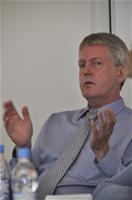 The division on the issue is significant in the largest Confederation of Icelandic Employers. The meeting with its deputy managing director Hannes G. Sigurdsson was an emanation of this division. He said that 43% of the members of the Confederation were supporting EU membership against 40%. 17 per cent have no opinion. This is the reason why Mr Sigurdsson refrained from expressing his personal position on the matter.
The division on the issue is significant in the largest Confederation of Icelandic Employers. The meeting with its deputy managing director Hannes G. Sigurdsson was an emanation of this division. He said that 43% of the members of the Confederation were supporting EU membership against 40%. 17 per cent have no opinion. This is the reason why Mr Sigurdsson refrained from expressing his personal position on the matter.
The official position
Iceland does not perceive itself as a newcomer in European integration because it is an activefor a long time. It is among NATO's founders (member since 1949), it is a member of the Council of Europe since 1950, of Schengen since 1996, the European Economic Area (the internal market) since 1994.
The accession application has been approved by a parliamentary resolution on July 16, 2009, although Pall Vilhjalmsson announced that in the beginning of June this year a draft resolution had been filed in Parliament, asking for withdrawal of the application. According to the Ministry for Foreign Affairs Iceland's home is Europe - common identity, shared values, regional cooperation and so many other things. In the above mentioned pragmatic sense - Iceland is interested in the EU because of the possibility to broaden security and also because of a long-term economic stability.
An interesting phenomenon are public opinion polls, showing a small 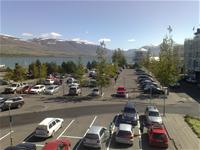 increase in support for starting negotiations with the EU from February 2008 until February 2009. In the same time the level of the opposition is stable, while the number of the undecided is dropping. The situation with the question for a real membership is very different - since August 2008 until February 2010 there is a significant drop in the numbers of those who what membership. This is combined with a drastic increase of resistance, while the number of undecided is relatively constant. No less indicative is the research of public opinion on the issue of the euro - there is a predominant support but there is a slight increase of opponents. There is also an increase of the people who have no position.
increase in support for starting negotiations with the EU from February 2008 until February 2009. In the same time the level of the opposition is stable, while the number of the undecided is dropping. The situation with the question for a real membership is very different - since August 2008 until February 2010 there is a significant drop in the numbers of those who what membership. This is combined with a drastic increase of resistance, while the number of undecided is relatively constant. No less indicative is the research of public opinion on the issue of the euro - there is a predominant support but there is a slight increase of opponents. There is also an increase of the people who have no position.
So, this is the environment in which Iceland will start the negotiation process probably next year because in the autumn the European Commission will start its screening - a necessary procedure before starting negotiations. The expectations are this procedure to take between 12 and 18 months until the final moment is reached - for the Icelanders to decide yes or no. And this will be an interesting process both for the EU and Iceland because in the most recent history of the Union we have not witnessed the accession of a country completely ready to join.
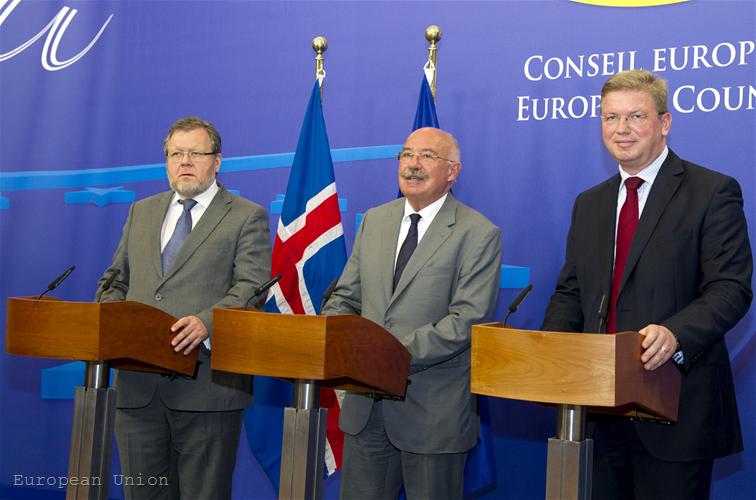 | © European Union
| © European Union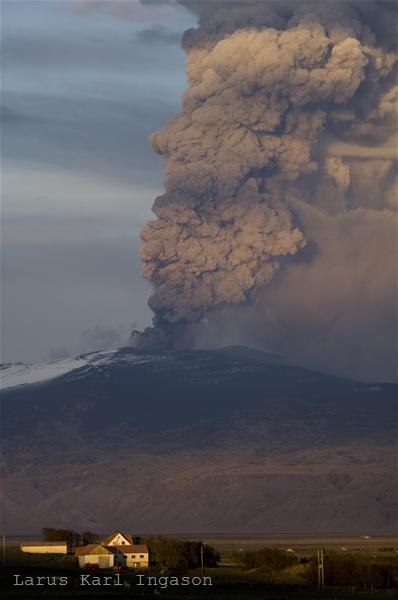 | © Larus Karl Ingason
| © Larus Karl Ingason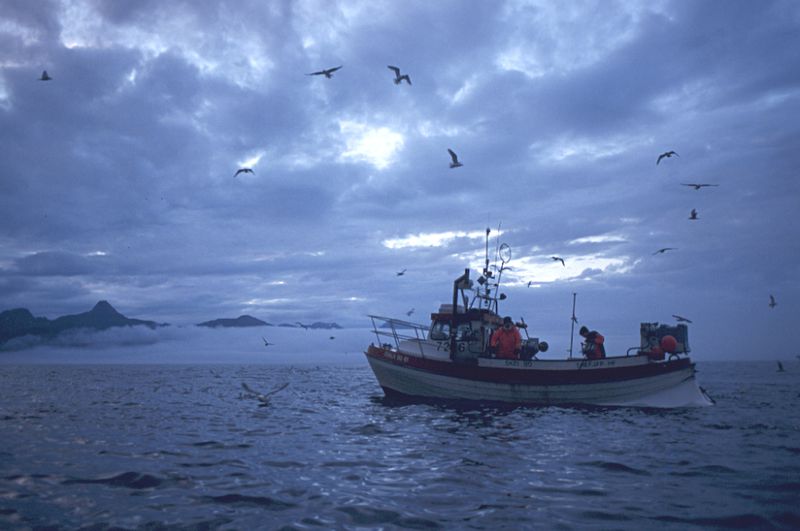 | © euinside
| © euinside